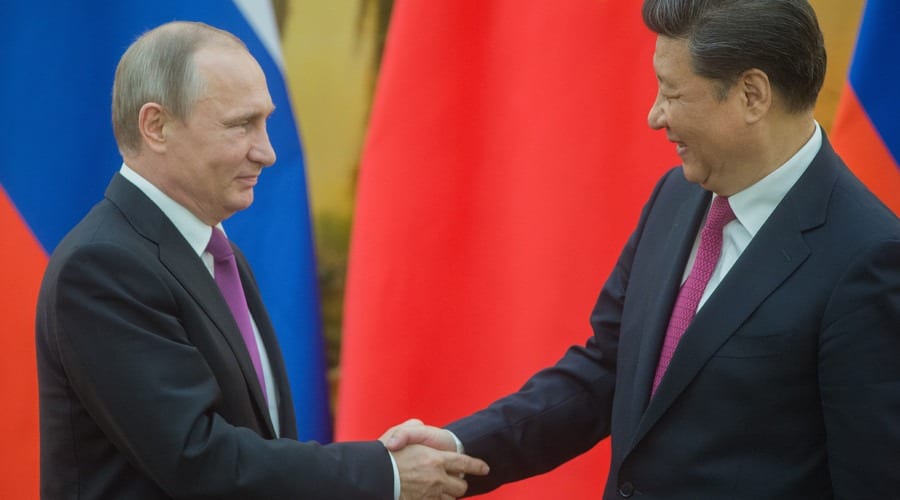
China Welcomes Putin With Red Carpet Treatment
Updated June 2023
As leaders worldwide gathered for the G20 summit, the spotlight turned to China’s reception of Russian President Vladimir Putin. Amidst the grandeur of the event, the meticulous planning that went into every detail became apparent, raising eyebrows regarding the treatment of U.S. President Barack Obama.
“It sure looks like a straight-up snub,” remarked Bill Bishop, a seasoned Chinese expert closely monitoring political developments in Beijing, during an interview with The Guardian. “This plays very much into the [idea]: ‘Look, we can make the American president go out of the ass of the plane.’ The idea that they have been preparing for well over a year for the G20 but suddenly there be a malfunction with the ramp just for one president … that strains credulity.”
Bishop’s observation echoed the sentiments of others at the summit, as they questioned whether the treatment afforded to the U.S. president was a mere oversight. The red carpet treatment extended to Putin seemed in stark contrast to the reception provided to President Obama.
As the G20 summit continued, the diplomatic nuances surrounding this reception remained a topic of discussion, leaving many to wonder about the underlying messages being sent on the global stage.
China’s Diplomatic Contrast: Putin Welcomed, Obama Snubbed
The recent grand reception for Russian President Vladimir Putin in China at the G20 summit sent shockwaves through international diplomatic circles. It was a display of warmth and hospitality that starkly contrasted to the reception given to U.S. President Barack Obama.
As one Chinese observer colourfully put it, Obama was “forced to come out of the ‘ass of the plane’,” a phrase that encapsulated the perception of a less-than-honourable reception. The contrasting treatment raised questions and underscored the intricate dance of geopolitics on the global stage.
China’s message to the U.S. was clear: they are ready to take a firm stance on the South China Sea issue, even to the extent of military conflict. The South China Sea holds strategic importance for China, and they are determined not to cede control of this vital maritime space. Experts have pointed out that had the U.S. not pushed China, the aggressive stance and the construction of artificial islands might not have escalated to this point.
Control of the South China Sea is paramount to China, as a U.S. naval blockade could cripple its economy. The situation in Ukraine also played a role in shaping the geopolitical chessboard. The overthrow of a democratically elected leader in Ukraine pushed Putin to take control of Crimea, as it was strategically essential for Russia’s only warm-water naval base.
The narrative of Russia as the aggressor in these scenarios has not been universally accepted. Rather, it is seen by some as a result of Western policies and interventions. The result is a shifting geopolitical landscape where Russia and China are drawn closer together.
The American unipolarity era appears to wane, as China and Russia flex their geopolitical muscles. Their influence extends across Asia, the Middle East, and Eastern Europe. The geopolitical alignment between these two nations is challenging the traditional dominance of Western powers.
In Europe, a growing realization is taking hold among the populace. They understand that America’s Middle East policies have played a role in the refugee crisis, increased violence, and transformed their way of life. Many Europeans no longer see Russia as the enemy, and scepticism about their governments is growing. The ties between Eastern Europeans and Russians, rooted in culture and history, are rekindling.
As the geopolitical chessboard continues to evolve, one thing is certain: the global balance of power is shifting, and it may ultimately redefine the alliances and rivalries that shape the world’s future.
Originally published on October 6, 2016, this content has been updated as of June 2023.










